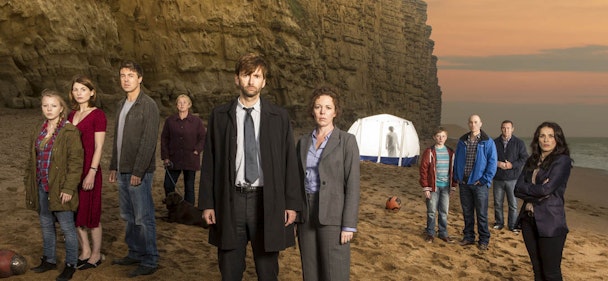ITV boss claims ‘TV is reasserting its importance to brands’ amid digital transparency fallout
An annual 3% slip in advertising revenue at ITV is more to do with a string of tumultuous events last year than it is waning interest in the medium according to the broadcaster’s chief executive Adam Crozier, who claimed it is “reasserting” its value to those advertisers questioning whether they have over-invested in digital.

ITV produced 155 hours worth of drama in 2016.
The media chief branded the revenue dip a “short-term” blip even though he admitted that he the trend is likely to stretch to the first four months of 2017 to as much as 6%.
Driving the decline, he revealed, are FMCG and retail advertisers that are siphoning TV spend into price cuts in response to inflation. However, the medium is in “rude health,” Crozier argued, with publishing and telecoms brands among those sectors he expects to see an increase in spend, alongside online businesses, which are now the country’s biggest spenders on TV.
It amounts to the first drop in ITV’s full-year advertising revenues since 2009. Again, Crozier attempted to play down its significance said its ad spend was still ahead of the market. The reason being that the broadcaster has already secured the backing from all the big media agencies, he said, and so know how much how ad spend it will generate.
“TV remains very cost effective,” he stressed in response to a question. “it’s around 28% cheaper that what it was in real terms 10 years ago. TV’s share of total ad revenue is still around 27.5% – that’s not moved very much. TV is reasserting its importance for advertisers, delivering reach, scale and fame for brands and I think very importantly with a trusted evolving measurement system… you only have to read the papers on both sides of the Atlantic to see there are some real growing concerns around the cost efficiencies and the impact of digital advertising.”
Crozier is referring to a debate that has been bubbling under the surface of the industry for the last 18 months but peaked last month when the world’s biggest advertiser, Procter & Gamble, slammed digital advertising's “murky” structure. The FMCG giant’s top marketer, Marc Pritchard, warned that he and his marketers would not spend their budgets with any media suppliers that did not comply with a framework designed to improve the transparency and effectiveness of its investments.
Whatever the benefit ITV may or may not get from this shift, the business is also trying to adapt to streaming services such as Netflix and Amazon Prime. But rather than view their meteoric growth as a threat, Crozier downplayed the impact they could have on his business, arguing that they are among the “biggest customers” for its ITV Studios division, which has upped its investment in US dramas such as ‘Somewhere Between’ and ‘Snowpiercer’. The investment contributed to around 7,800 hours’ worth of content produced for 234 channels and services in the UK and internationally last year, including 155 hours of drama and 80 formats.
The success of ITV Studios, which posted a 16% uplift in profit last year, is emblematic of what Crozier calls a “rebalance” of the business to lessen its reliance on advertising and the UK market. In 2016, more than half (53%) of the broadcaster’s revenue came from sources outside traditional TV ads, while 50% of the sales it makes from its studio division comes from outside the UK.

